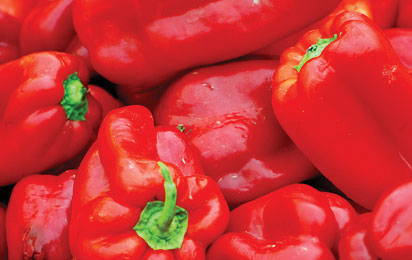Many Nigerians have been drawn by the “japa” trend to look for better prospects elsewhere. The most sought-after travel destinations are the United States, the United Kingdom, and Canada. Despite their best efforts to start over, many Nigerians living overseas still yearn for the comforts and familiar flavours of their own cuisine.
Offering them the comforting meals they are accustomed to and enjoy would be a great way to help them feel less homesick. Nigerian cuisine is adored by both food enthusiasts who are adventurous and by Nigerians who are far from home because of its flavour, culture, and distinctive ingredients.
Here are five Nigerian foods you may export, as there is a growing market for these genuine Nigerian components in the US, UK, and Canada:
Yam flour (Amala or Elbujo)
Yam flour, which is produced from powdered and dried yams, is a staple in Nigerian cooking, particularly when it comes to producing Amala, a delectable meal that is frequently eaten with soups.
It is gluten-free, lightweight, and has an extended shelf life. These draw in clients who are concerned about their health from all around the world. Make sure your yam flour is processed and packaged in accordance with international standards if you plan to export it. To attract customers from both Africa and other continents, mention that it is gluten-free.
Palm oil
A distinctive and genuine flavour that is difficult to duplicate, palm oil is essential in many West African cuisines. Apart from culinary applications, it finds extensive usage in cosmetics and wellness items. Nigerian palm oil is profitable in Western markets and may be sourced sustainably and ethically.
Verify whether the palm oil has a certification for being sourced responsibly. For consumers in Western markets who are concerned about the environment, this is becoming more and more significant. Ascertain adherence to EU and FDA regulations as well.
Ground egusi (seeds of Melon)
Packed with a nutty flavour that complements African cuisine, egusi, or pulverised melon seeds, is a high-protein and flavourful soup. Beyond African food stores, it’s becoming increasingly popular and essential for Nigerian soup recipes. To ensure freshness and convenience for customers, package egusi in tiny, easily storable quantities.
Zobo leaves, or dried hibiscus flowers
The popular Nigerian beverage known as zobo, which is rich in antioxidants and refreshing, is made from dried hibiscus blossoms, or zobo leaves. Hibiscus tea has a prospective market outside and is already well-liked in many regions of the world.
To increase appeal in the health-conscious market, emphasise the advantages of zobo and think about branding it as organic when exporting. An eye-catching package and appropriate branding will make it stand out on the shelves.
Dried Pepper (Ata Rodo)
Nigerian cuisine is renowned for its robust, spicy kick, which is added by dried pepper varieties like ata rodo, also known as Scotch bonnet.
These peppers, which are widely consumed due to their extreme heat, are a mainstay in grocery stores across Africa. To keep dried peppers fresh, place them in airtight containers. Indicators of the peppers’ level of heat should also be included on the packaging to help customers make an informed decision.











